For a "Profoundly Secular" Nation, King Charles's Coronation Remains a Very Religious Ceremony
- Oops!Something went wrong.Please try again later.
"Hearst Magazines and Yahoo may earn commission or revenue on some items through these links."
As Charles III is crowned King of the United Kingdom and the Commonwealth, and Defender of the Faith, Ian Bradley, Emeritus Professor of Cultural and Spiritual History at the University of St Andrews, explores the unique significance of Christian monarchy in this extract from his new book God Save the King.
Interviewing me about the accession of King Charles III to the United Kingdom throne following the death of his mother, Queen Elizabeth II, in September 2022, a distinguished columnist from the Washington Post expressed his astonishment about one particular aspect of the process: ‘For a country which is so secular and where so few go to church, you sure mention God a lot.’
He is absolutely right. The official ceremonies that mark the accession of a new monarch are steeped in religious language. The Proclamation of Accession, read out at St James’s Palace, London, in Edinburgh, Cardiff and Hillsborough and in cities and towns across the nation began: ‘Whereas it has pleased Almighty God to call to His Mercy our late Sovereign Lady Queen Elizabeth the Second’ and went on to note that Charles III rules ‘by the Grace of God’ and to beseech ‘God, by whom kings and queens do reign, to bless His Majesty with long and happy Years to reign over us.’
In similar terms, the new king spoke of his reliance on God’s help in every one of his public speeches following his accession and the Almighty was invoked by most of the political leaders offering condolences and delivering loyal addresses in the parliaments and assemblies of the United Kingdom. God is, of course, directly referenced on every coin of the realm where the abbreviations D.G. Rex and F.D. (sometimes extended to Fid Def) signify that the king (Rex) rules by the grace of God (Dei Gratia) and is Defender of the Faith (Fide Defensor).
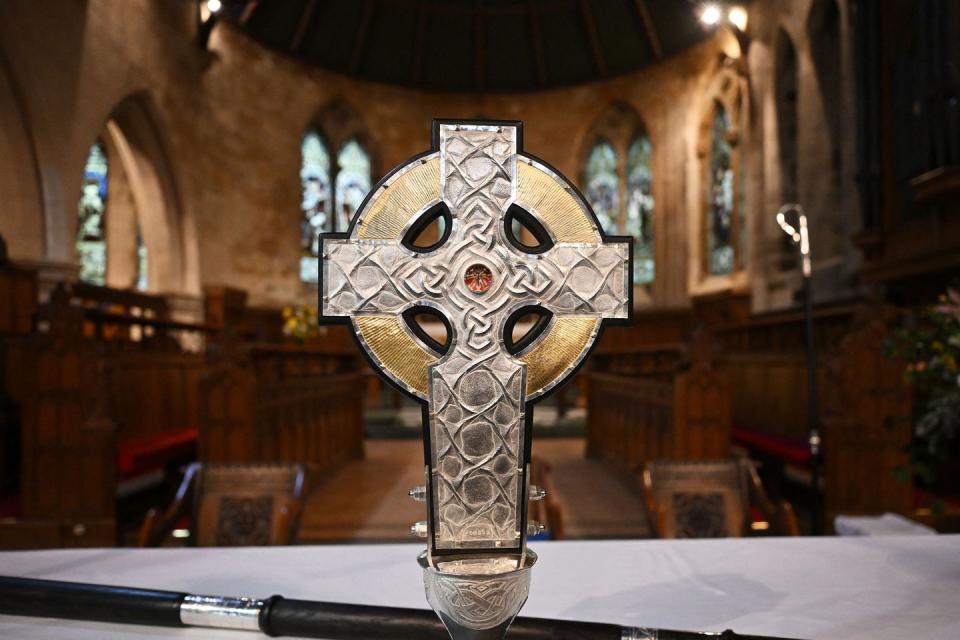
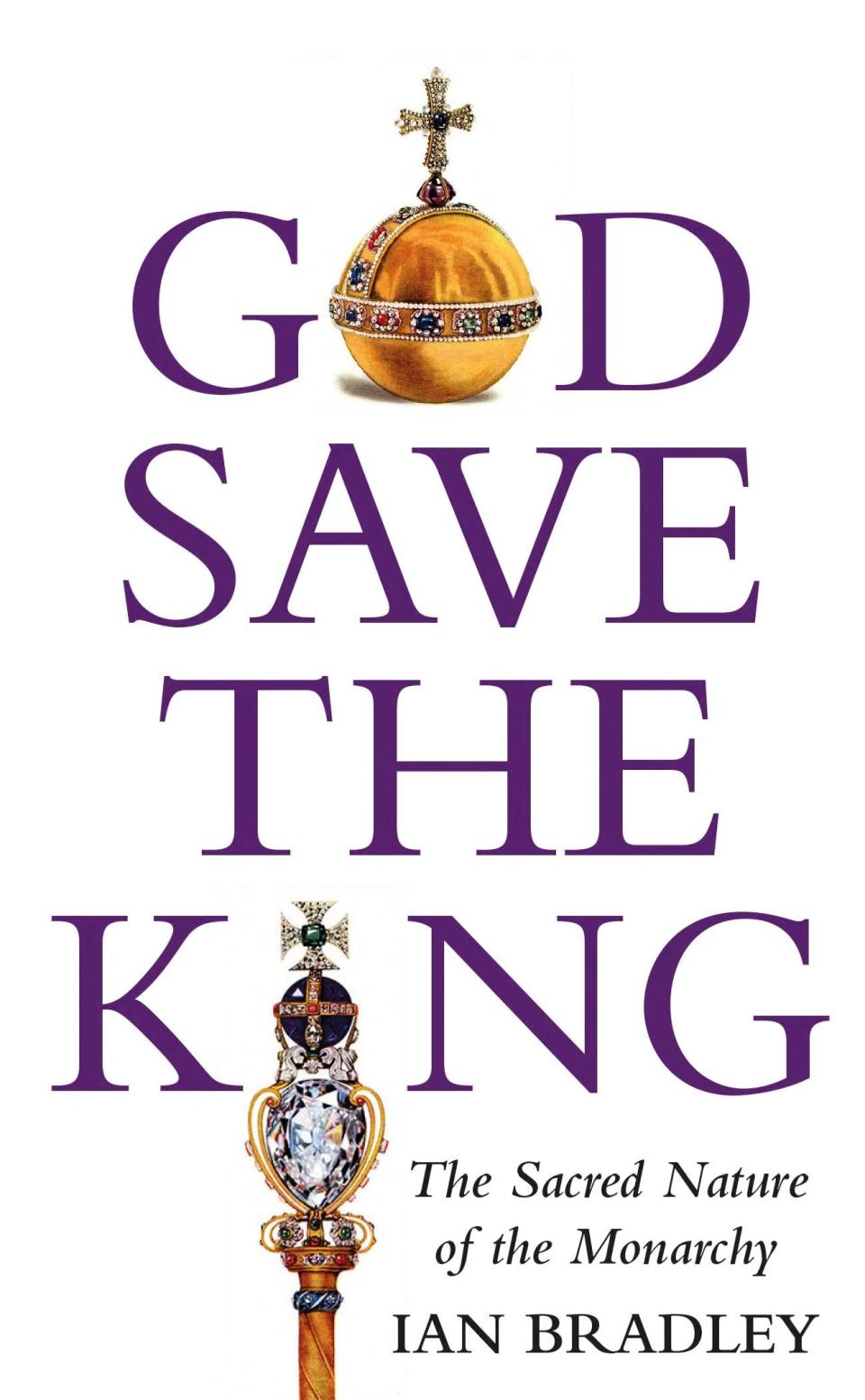
God Save The King: The Sacred Nature of the Monarchy
$5.49
amazon.com
My American interrogator will be even more bemused by the overtly religious atmosphere of the coronation at which Charles will be formally invested with regal authority. It is a service of Christian worship, traditionally framed in the context of a celebration of Holy Communion and directly modeled on the crowning of Israelite kings as described in the Hebrew Bible, in which the new monarch is anointed with holy oil, consecrated and set apart in the manner of a priestly ordination.
The coronation oaths, which perhaps come nearer than anything else to expressing the essence of the unwritten British constitution, are also markedly and explicitly Christian in character, binding the new monarch to ‘maintain the Laws of God and the true profession of the Gospel’ and more explicitly to ‘maintain in the United Kingdom the Protestant Reformed Religion’ and to preserve inviolably ‘the settlement of the Church of England, and the doctrine, worship, discipline and government thereof.’ The first official utterance by Charles as king at the Accession Council held just two days after his mother’s death, made with the Bible in his right hand, was an oath in which he solemnly swore to maintain the Presbyterian government of the Church of Scotland.
The fact is that although we may not ‘do God’ in Britain in the manner of American politicians who conclude every speech with the words ‘God bless America,’ our unwritten constitution is undergirded by a sense of divine providence and guidance and an understanding that we owe our ultimate allegiance to something greater than ourselves. This God language is focused around the monarchy which in our profoundly secular and supposedly post-Christian nation is still surrounded by religious imagery and symbolism and remains perhaps the one institution with a clear Christian focus, not least in its intimate relationship with and responsibility for maintaining and preserving the doctrine, worship and government of the country’s two established churches.
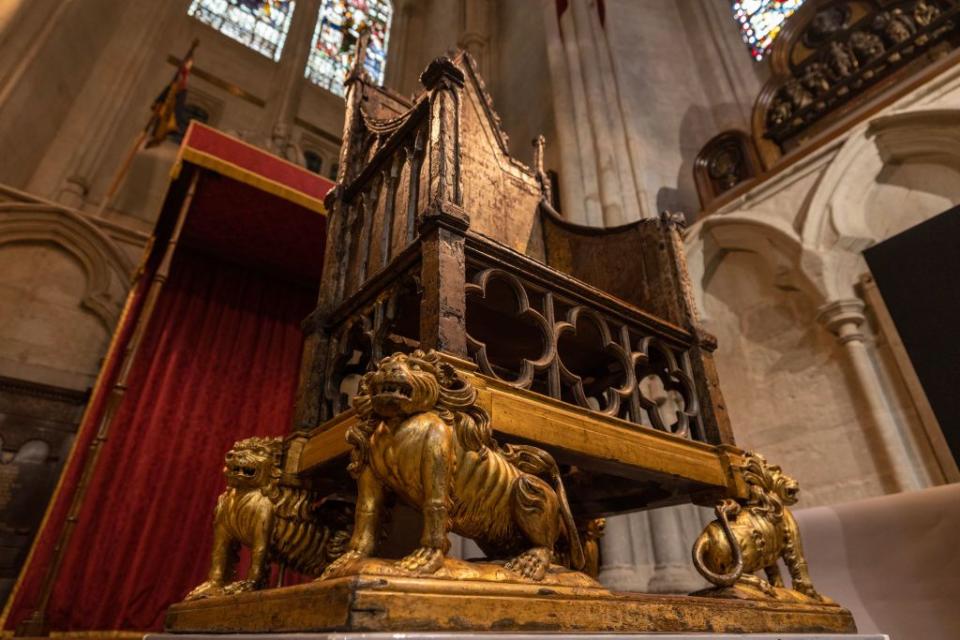
More than four hundred years ago William Shakespeare was similarly struck that ‘such Divinity should hedge a king.’ The public mood has changed considerably since he gave that line to Claudius in Hamlet. Few if any now believe in the theory of the Divine Right of Kings which many subscribed to in the seventeenth century, or indeed take the view that polls suggest was still held by two thirds of the British population at the time of the last coronation in 1953, that the monarch is directly chosen by God. Yet quite apart from the frequent referencing of what has been described as ‘the transcendent God of the state occasion’ in connection with the institution of monarchy, there is still a widespread popular appreciation of and identification with the monarchy’s spiritual and religious aura, expressed in more immanent and intimate terms.
This was underlined by the public reaction to the death of Queen Elizabeth II. Commentators were struck by the very large numbers of people who turned out to witness the progress of the Queen’s coffin from Balmoral to Edinburgh, to file past it in the High Kirk of St Giles and Westminster Hall and to line the streets for its final journey from London to Windsor. What struck me was how many of them bowed, knelt or crossed themselves, using essentially religious gestures and rituals. Many of those interviewed described seeing the coffin, even if only passing by in a hearse, as a spiritual experience. The proprietor of a tourist souvenir shop along Edinburgh’s Royal Mile, which remained largely unvisited in the hours before, during and after the passage of the coffin from the Palace of Holyrood to St Giles, summed up the atmosphere in the city centre as ‘sacred.’
There was, indeed, something very medieval and very Catholic about the enormous respect, amounting almost to veneration, shown towards the late queen’s corporeal remains in their lead lined oak coffin. Several of those patiently waiting for up to 24 hours in the queue to file past the coffin in Westminster Hall, which at one point stretched to ten miles, described it as being like a pilgrimage. One of the volunteer chaplains to the queue told me that he had several requests for prayer and was even asked to bless a ten month old baby who was being taken by her grandmother to pay her respects.
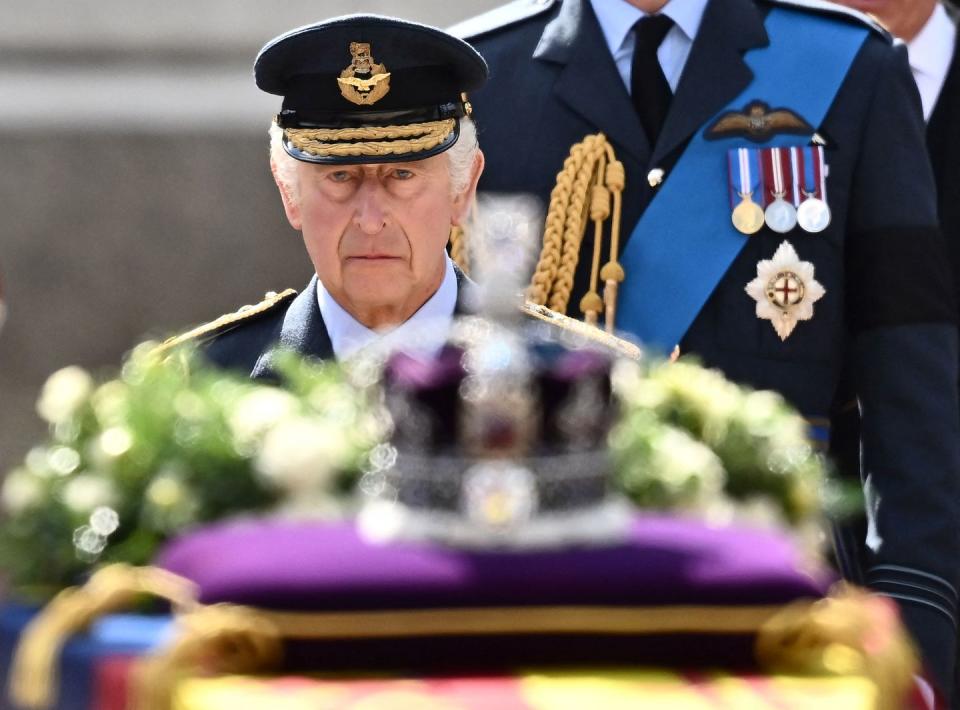
Ironically, given the monarchy’s role as protector of Protestantism, indeed arguably the last great bastion of Protestant Britain, there was more than a hint of the cult of saints’ relics, reinforced by the spontaneous creation of shrines around the gates of the royal palaces made up of votive offerings in the form of flowers, Paddington Bear figures and marmalade sandwiches. People seemed to feel a need to be close to the late Queen’s body – even though in Christian understanding her soul had long departed – just as many sought to reach out and shake the hands of the new King, his Queen Consort and the new Prince and Princess of Wales on their walkabouts in gestures which recalled the medieval and early modern practice of touching for the king’s evil.
In addition to those who sought some kind of physical contact with either the departed or the new monarch, many more went to churches and cathedrals to express their grief and pray for the new reign. Birmingham Cathedral alone had 10,000 visitors in the three days following the Queen’s death and Wakefield Cathedral became a mecca for Muslim families who welcomed the opportunity to light a candle. Churches provided a place and a space for grieving, contemplation and reflection on the part of the great unchurched majority of the nation and for adherents of minority faiths.
In an article in The Times which attracted a good deal of attention, I argued that both the official events and the popular reaction following the death of Queen Elizabeth II and the accession of King Charles III perhaps revealed Britain to be a more religious country than statistics of decline in churchgoing and sociological studies of secularization might suggest. They had, I suggested, ‘underlined and uncovered a deep residual spiritual strain, explicitly though not exclusively Christian, at the heart of the nation.’ I went on to say that ‘What we have witnessed is the resurgence of a long latent and never quite dormant implicit folk religion which is emotional and instinctive rather than rational or intellectual. It is expressed in feeling more than in believing and it is not exclusively Christian – indeed it finds moving expression by adherents of other faiths.’
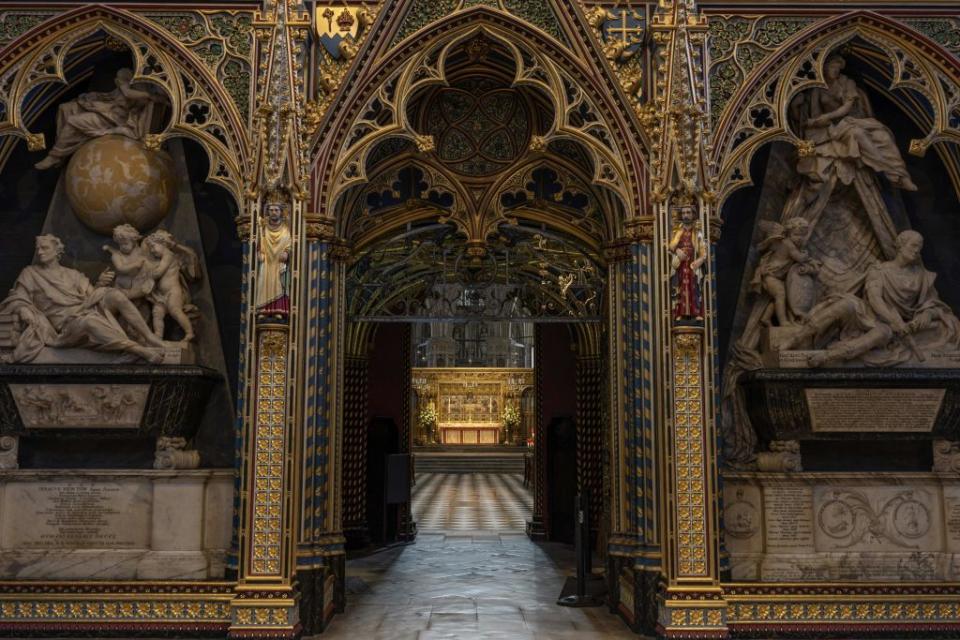
It is not surprising that it should be the monarchy that unleashed this latent spirituality and religious sentiment which usually lies hidden. It is perhaps the one institution left in the country with the power and capacity still to evoke a popular religious response, explicitly though not exclusively Christian.
More than 150 years ago Walter Bagehot, the Victorian essayist, noted that the monarchy constitutes ‘the solitary transcendent element in the state’ which ‘strengthens our government with the strength of religion.’ Nor is it surprising that for many people encounters with royalty often take on the character of a religious experience and that words like ‘reverence,’ ‘grace’ and ‘blessing’ are commonly used to describe them.
This struck the American travel writer Paul Theroux while journeying round Britain in the early 1980s. Arriving in the coastal town of Anstruther in Fife just after it had been visited by Queen Elizabeth II, he noted that ‘It was as if the town had been refreshed with a blessing. In a way it had, for that atmosphere was the spirit left by the progress of the Royal visit.’ The social anthropologist, Anne Rowbottom, has shown just how strong a religious element there still is in the continuing love-affair between the majority of the British population and royalty. For her, the ultimate ground of pro-royal sentiment is comparable with a religious force rather than with showbusiness or celebrity appeal.
For this reason, and for others as well, I believe that we can justifiably continue to apply to the monarchy the epithet ‘sacred.’
God Save the King: The Sacred Nature of the Monarchy by Ian Bradley (Darton, Longman & Todd) is available from all good book retailers.
You Might Also Like

